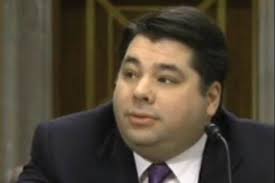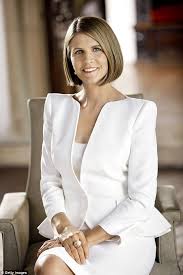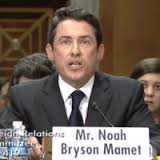For a number of years, it has been common for presidents of both parties to select major campaign donors for ambassadorships, but recent nominees have raised eyebrows.
Late last year Caroline Kennedy was named by the president to be ambassador to Japan. Along with her uncle, the late Sen. Ted Kennedy, she supported Barack Obama in his campaign against Hillary Clinton in 2008.
In 2009 she abruptly pulled out of the race to fill Clinton’s New York senate seat after uncomfortable appearances where she “seemed awkward and dispassionate, unsure of why or if even she wanted the job,” reported the Christian Science Monitor, “unable to artfully articulate the commitment to public life …”
Last month she touched off a controversy with the Japanese government when she objected to a form of traditional fishing in Japan called a “drive hunt” in which dolphins are killed.
More recently, three nominees in particular caused members of the Senate Foreign Relations Committee to treat them even more casually than normal. There, before the committee, were Colleen Bradley Bell, producer of the CBS soap opera, The Bold and the Beautiful, nominated ambassador to Hungary; George J. Tsunis, Chairman and CEO of Chartwell Hotels, LLC, named ambassador to Norway; and Noah Bryson Mamet, a long-time California political operative, nominated to be ambassador to Argentina.
Bell and Mamet each bundled more than $500,000 in campaign funds for Obama, while Tsunis is said to have raised more than a $1 million. All three had embarrassing moments during questioning that led Sen. John McCain to say with tongue in cheek, “I have no more questions for this incredibly highly qualified group of nominees.”
While the nominees had months to prepare and become familiar with the countries to which they were being assigned, I blame poor prepping on the part of the State Department, especially spokesperson Jen Psaki and her deputy, Marie Harf,
It should be noted that Obama signed an executive order in 2009 requiring that government hiring be “based upon qualifications, competence and experience, not political connections,” according to Theodore R. Bromund, Ph.D. But then he has reneged on so many campaign promises; who’s counting?
Finally, the senate voted 96-0 to approve Sen. Max Baucus (D-MT) to be the next ambassador to China. While admitting not to be an expert on Asia, he fully understands the importance of the U.S. – China relationship. This was an Obama payback in another way. He used his position as chairman of the Senate Finance Committee to support health care reform. With his departure, Democrats are taking the opportunity to play musical chairs, moving Sen. Ron Wyden (D-OR) into the finance post and Sen. Mary Landrieu (D-LA) to the chairmanship of the Senate Energy Committee. With Landrieu in that key position for her state it could improve her chances of holding on in Louisiana in 2014 despite her support of ObamaCare.
Former Secretary of State Colin Powell was struck that there “were many people in senior positions who … didn’t know basic things.” An estimated two thirds of our ambassadors are political appointees.
 One very capable ambassador, chosen for his competence, experience and language fluency, was Chris Stevens, who was killed in Benghazi; the first ambassador killed in 40 years.
One very capable ambassador, chosen for his competence, experience and language fluency, was Chris Stevens, who was killed in Benghazi; the first ambassador killed in 40 years.
In honor of Stevens and the three other Americans killed in Benghazi – Sean Smith, Glen Doherty and Tyrone Woods – I will continue to use kramerontheright to keep the Benghazi scandal alive until the unanswered questions are resolved.








